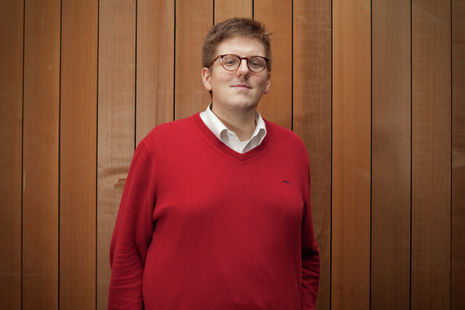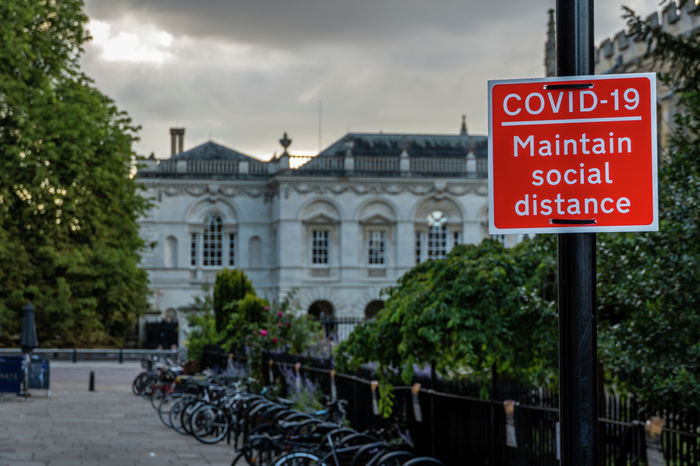How is Flemish Belgium approaching universities amid the pandemic?
Yan-Yi Lee speaks to Michael Devoldere, chief assistant to Flanders’ Minister of Education about its approach to Covid-19

The light autumn breeze in campuses carries fallen leaves around unlike any other year. But for higher education, the year has been anything but normal. Universities have been hard at work implementing measures to keep students safe, and Flemish Belgium is no exception. Located in the North of the country and otherwise known as Flanders, it is Belgium’s Dutch-speaking region and like most countries this year, has battled fiercely to control the coronavirus.
As part of our new series exploring how higher education around the world has adapted to the pandemic, Varsity spoke with Michael Devoldere, chief assistant to Ben Weyts, the Minister of Education in Flemish Belgium, to understand the differences in coronavirus-related policies and how they differ from the UK’s.
“It’s quite easy to close down the schools, but then it’s very difficult to open them up again”
“It’s quite easy to close down the schools, but then it’s very difficult to open them up again,” Devoldere says.
In September 2020, the University of Antwerp, Hasselt University, and Ghent University in Flemish Belgium had decided to adopt ‘code orange’, implementing safety measures which were stricter than those recommended by the government. But as the country’s cases skyrocketed, it announced an upgrade to pandemic ‘level 4’ on October 19th. The largest university in Belgium and in the low countries, the Catholic University of Leuven (KU Leuven), was forced to implement the uppermost ‘code red’ across all its campuses beginning from November, forcing all classes and extracurricular events online.
But on the weekend before Halloween, the government acted to win back some popular support as it sought to control the virus, and so extended Flanders’ All Saints’ holiday. Within the country, Flemish policies also differ with those of Wallonia, the predominantly French-speeaking region of Belgium - though there are efforts to communicate across regional borders. “We are talking a lot with our Francophone neighbours,” insists Devoldere. “We try to match it up”.
“We respect the autonomy of the universities, but we’re very worried about the first-year students… they have no time to get used to the different style of education”
Universities have been given a significant amount of autonomy in deciding their pandemic policies, allowing them to flexibly enact their own regulations as the situation evolved. However, concern has grown among the authorities over how well universities are actually dealing with issues individually, and how the Ministry could offer the best advisory support.
In particular, something Devoldere highlights - and an issue that strongly mirrors the situation in Cambridge - concerns the wellbeing of undergraduate freshers.
“We respect the autonomy of the universities, but we’re very worried about the first-year students… they have no time to get used to the different style of education.” The chief assistant explains the delicate balance the Ministry has to maintain in its advice, encouraging as much digital learning as possible on the one hand, while also hoping for freshers to meet each other when the circumstances allow.
Devoldere also addresses mental health in Flanders, an issue that has emerged even more to the surface after the coronavirus outbreak. “What we see with Covid-19 is that it makes visible a lot of problems that were there before… they are not new problems, but thanks to Covid-19 we can see them better”. He adds that the Ministry had not taken this issue seriously enough in pre-Covid days, and that the recent predicament shall put the Ministry in a position to “pay more attention to that aspect of student life”.
“Digitisation was already fairly advanced in the universities… they already had all of the digital systems in place”
But the pandemic also had an impact on the Ministry’s existing projects and funding, Devoldere explains.
He says that because of relatively lower university tuition fees, “the main problem in [Belgian] universities is that students take too many years to finish their university education”. Now, he admits, disruptions related to Covid-19 and a volatile job market that may follow could mean “even more students take even more time to finish higher education, which will make it a lot more expensive for the taxpayers”.
But Devoldere stresses the sudden transition from in-person to distance teaching has not affected higher education as much as he expected, and that there is reason to speculate the pandemic might not have a long-term effect on the future of Flemish tertiary education.
“Digitisation was already fairly advanced in the universities… they already had all of the digital systems in place”, he said. Furthermore, a surprising finding is that tertiary academic performance appeared to have improved with large-scale digitised learning. “The numbers are good… even a bit better than normal. More students passed this year.”
Devoldere acknowledges the possibility of this being the result of professors’ leniency in the heat of the pandemic - and admits more research may be needed to assess the actual learning dynamics during pandemic-related distance learning.
But Devoldere also has food for thought for universities in the UK and worldwide concerning tighter information exchange across borders.
“We are taking measures only after speaking to experts, but it’s only Belgian experts, and even only Flemish ones. We are relying on science but it’s our own science. I hope that the experts look to other countries as well,” he says.
But above all, he stresses that going into the future, Flemish Belgium does not want a repeat of the first wave lockdowns when it comes to education. “This year, we don’t want to close schools again, at least not a general closing,” he says. With this view, Devoldere brings at least a note of certainty amidst the chaos of this year, while the battle to bring education to people of all ages among the pandemic continues for educators in Flanders and beyond.
 Features / Should I stay or should I go? Cambridge students and alumni reflect on how their memories stay with them15 December 2025
Features / Should I stay or should I go? Cambridge students and alumni reflect on how their memories stay with them15 December 2025 News / Cambridge study finds students learn better with notes than AI13 December 2025
News / Cambridge study finds students learn better with notes than AI13 December 2025 Comment / The magic of an eight-week term15 December 2025
Comment / The magic of an eight-week term15 December 2025 News / News In Brief: Michaelmas marriages, monogamous mammals, and messaging manipulation15 December 2025
News / News In Brief: Michaelmas marriages, monogamous mammals, and messaging manipulation15 December 2025 News / Uni Scout and Guide Club affirms trans inclusion 12 December 2025
News / Uni Scout and Guide Club affirms trans inclusion 12 December 2025










